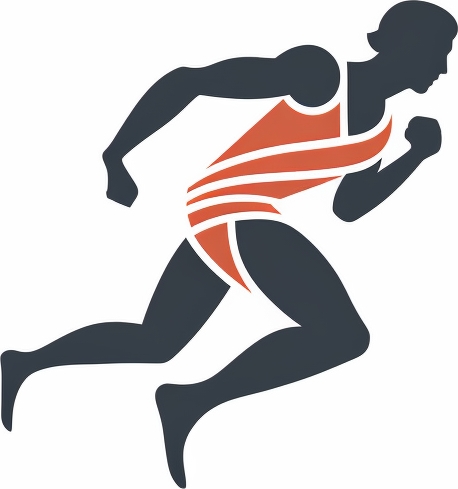As runners, we know that what we eat before hitting the pavement can greatly affect our performance. Pre-run fuel has the purpose of providing our bodies with the necessary energy to power through the miles and avoid hitting the dreaded wall.
Carbs are the most important nutrient to consume before a run. They are easily digested and provide the necessary glycogen stores that our muscles need to keep us going. Good sources of carbs include bananas, oatmeal, whole-grain bread, and sweet potatoes.
Protein is also important to help build and repair muscles, but it should be consumed in moderation before a run as it takes longer to digest. As a general rule, aim for a ratio of 3:1 or 4:1 carbs to protein in your pre-run meal.
Timing is also important when it comes to pre-run fuel. Ideally, you should eat a meal that is high in carbs 2-3 hours before your run. However, if you don’t have that much time, aim for a smaller snack that is easy to digest 30-60 minutes prior to your run.
The Role of Hydration in Running
Staying hydrated is crucial for runners. Even mild dehydration can affect your performance and increase the risk of injury. Drinking enough water before, during, and after your run can help you stay energized and focused.
It’s important to start your run properly hydrated. Aim to drink 16 ounces of water 2-3 hours before your run and another 8-10 ounces 10-20 minutes before you start.
During your run, you should drink water every 15-20 minutes to maintain hydration and replace fluids lost through sweat. If you’re planning a longer run, consider a sports drink that contains electrolytes to help replenish sodium, potassium, and other minerals that are lost through sweating.
After your run, don’t forget to rehydrate. Drink water or a sports drink as soon as possible to replace fluids lost through sweating. Aim for 16-24 ounces for every pound lost during your run. Don’t forget to listen to your body and drink when you feel thirsty.
Remember, proper pre-run fuel and hydration can greatly impact your performance and overall enjoyment of your run. It’s important to experiment and find what works best for you. Don’t forget to fuel up, drink up, and enjoy the ride!
Understanding Post-Run Nutrition Needs
Post-run nutrition is just as important as pre-run fuel. During a run, our muscles use up stored glucose and glycogen and break down muscle protein. Post-run nutrition helps to replenish those stores and rebuild muscle fibers. Proper nutrition can help reduce muscle soreness, speed up recovery time, and improve overall fitness performance.
The general rule of thumb for post-run nutrition is to eat within 30 minutes of finishing your run. During this window, your body is most efficient at replenishing glycogen stores and repairing muscle tissue.
Post-run meals should contain a combination of protein and carbs. Protein is essential for muscle repair and recovery, while carbs help to replenish glycogen stores. Good post-run meals include a vegetable omelet with whole-grain toast, Greek yogurt with fruit and nuts, or a turkey sandwich with raw veggies.
If you can’t stomach solid food, opt for a protein shake or smoothie. Add fruits, vegetables, and protein powder to create a nutrient-dense shake that helps your body recover from your run.
Ideal Foods for Recovery and Weight Loss
Whether you’re looking to lose weight or recover from a long run, consuming the right foods post-run is key. Here are some ideal foods to include in your post-run diet:
-
Lean Protein: Turkey, chicken, fish, and tofu are good sources of lean protein. They provide amino acids that aid in muscle recovery and growth.
-
Complex Carbs: Brown rice, quinoa, sweet potatoes, and oats are all good sources of complex carbs. They provide the necessary energy to replenish glycogen stores.
-
Fruits and Vegetables: These foods are great for post-run recovery. They contain essential vitamins, minerals, and antioxidants that help to reduce inflammation and repair muscle damage.
-
Low-Fat Dairy: Milk, cheese, and yogurt are great sources of protein, calcium, and vitamin D. They help to build and strengthen bones and muscles.
-
Nuts and Seeds: Almonds, walnuts, and chia seeds are all great sources of healthy fats and protein. They help to reduce inflammation and improve overall recovery.
By including these foods in your post-run diet, you can help your body recover faster and feel more energized for your next run. Remember to eat within 30 minutes of finishing your run and listen to your body to determine what works best for you.
Timing is Key: When to Eat Before and After Your Run
Timing is crucial when it comes to pre- and post-run nutrition. Eating the right foods at the wrong time can lead to stomach cramps, bloating, and slowed performance. Here are some guidelines for when to eat before and after your run:
-
Pre-run: Aim to eat a high-carb, low-fat meal 2-3 hours before your run. If you don’t have that much time, opt for a small snack that is easy to digest 30-60 minutes before your run.
-
Post-run: Eat a meal that contains a combination of protein and carbs within 30 minutes of finishing your run. Be sure to drink plenty of fluids to rehydrate.
Remember to listen to your body and adjust accordingly. Everyone is different, and what works for one person may not work for another.
Putting it All Together: Sample Meal Plans for Runners
Here are some sample meal plans to give you an idea of what to eat before and after your run. Remember, these are just suggestions. Adjust them based on your preferences and dietary needs.
Pre-Run Meal Plan:
- 2-3 hours before your run: Whole-grain toast with peanut butter and banana slices.
- 30-60 minutes before your run: Low-fat yogurt with a handful of berries.
Post-Run Meal Plan:
- Breakfast: An omelet with veggies, whole-grain toast, and a side of fruit.
- Lunch: Grilled chicken salad with mixed greens, veggies, and quinoa.
- Dinner: Baked salmon with roasted sweet potatoes and steamed broccoli.
- Snack: Apple slices with almond butter.
Remember to hydrate properly before, during, and after your run. Opt for whole, nutrient-dense foods that will fuel your body and aid in recovery. By fueling your body with the right foods at the right time, you’ll be able to perform your best and reach your running goals.

